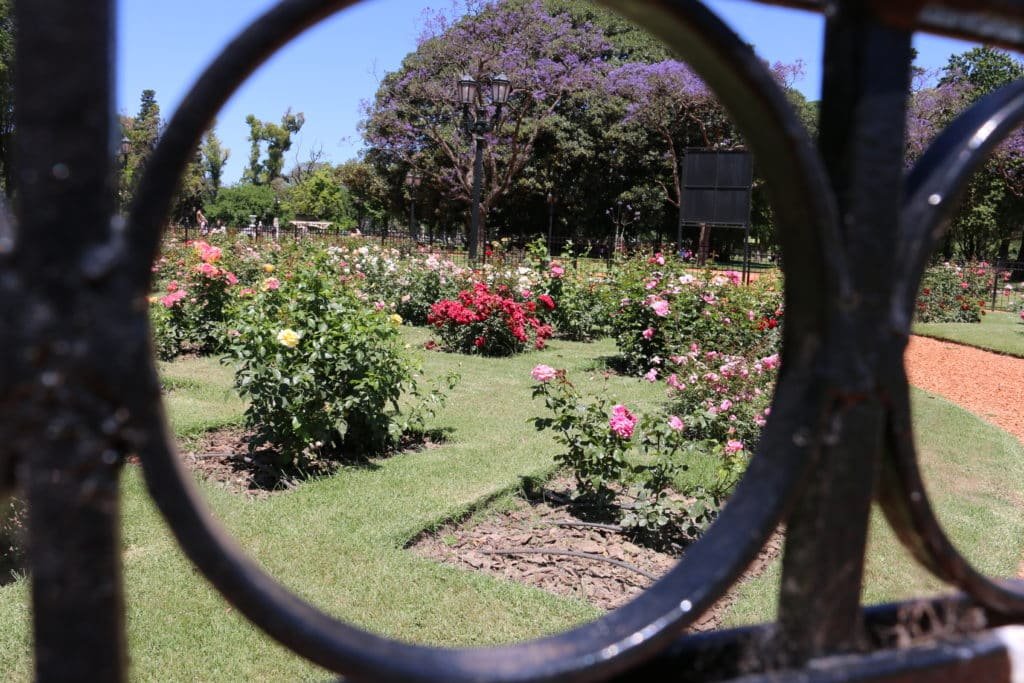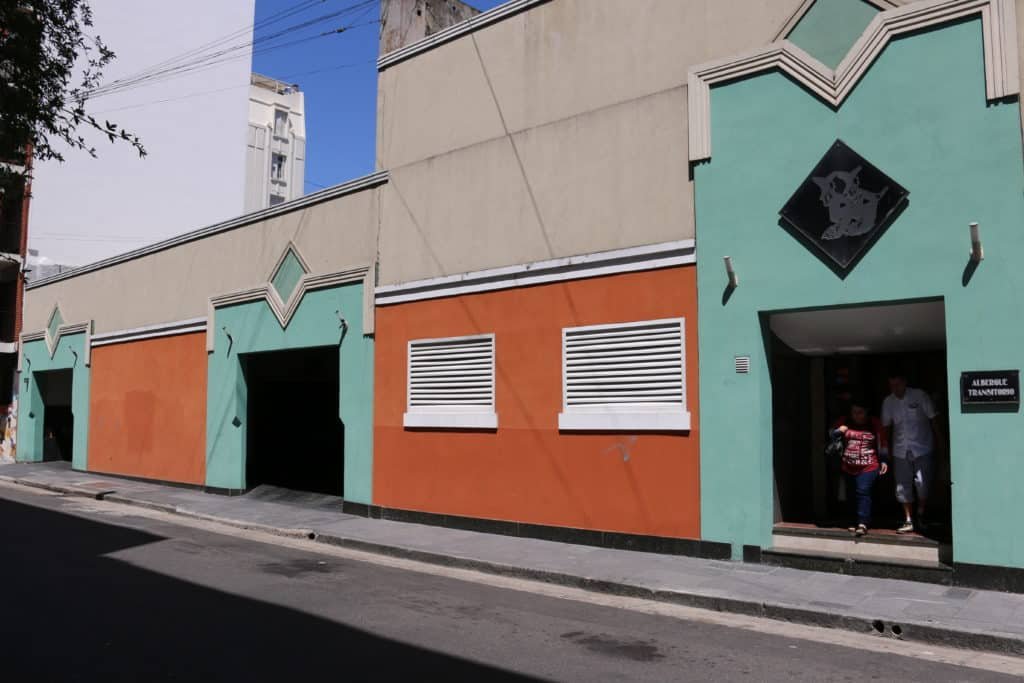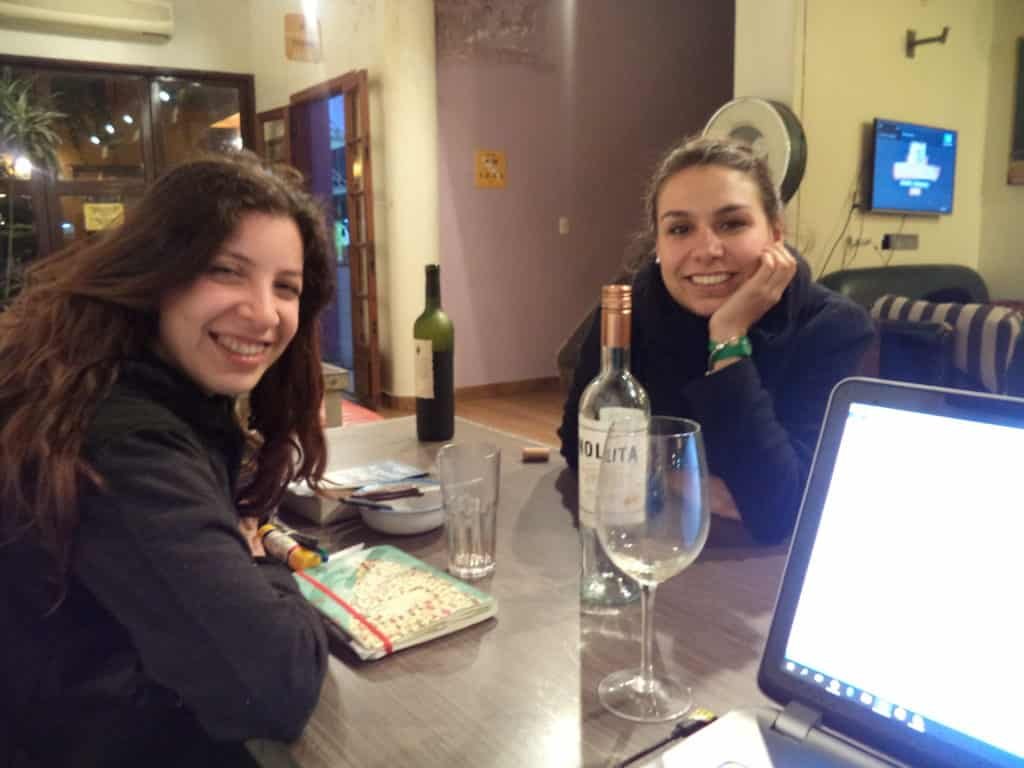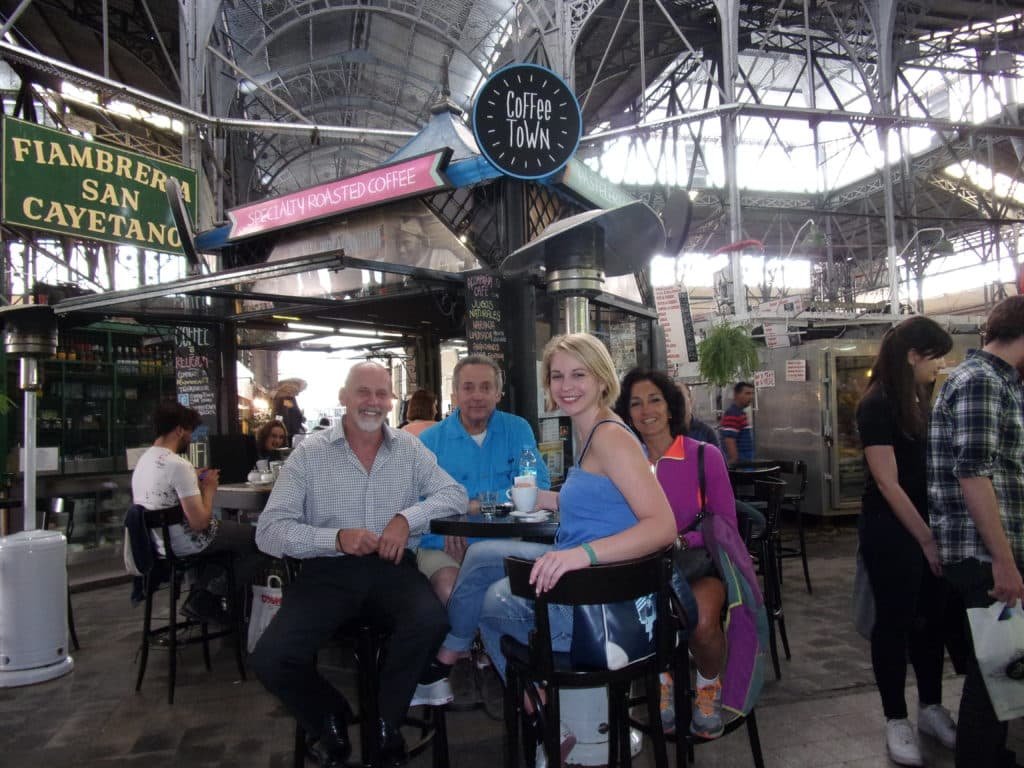by John Bechtel | Dec 25, 2016 | Argentina, Buenos Aires, Entrepreneurship

Estefania Gulina, first time Executive Producer, from Cordoba, Argentina
Some live lives of unfulfilled promise; lives that could have been, but that didn’t happen. Sometimes because the individuals are too dull-witted to even conceive of their own possibilities, overwhelmed and paralyzed by too many possibilities, too risk averse to take a chance, or lacking the industry and persistence to pursue their dreams with focus and stamina. None of this describes Estefania Gulina, a 32-year-old first-time Executive Producer of a movie to be filmed in Cordoba, Argentina, and a recent guest at Puerto Limon Hostel here in Buenos Aires. Her motto is “The way traveled was not wasted time if it has really been lived.”
Estefania is passionate about everything she does; she has little tolerance for a monochromatic existence, and if she is going to do something, she will hold back nothing as if subconsciously preparing for failure. She says her broad interests and passion for making things happen are the reason she has gotten involved and stayed with projects for years. But she is no fool either.
(more…)
by John Bechtel | Dec 20, 2016 | Argentina, Buenos Aires, Puerto Limon Hostel, South America

From the left: John Bechtel, freelance travel and culture writer; Joshua Kelsey, scholar, linguist, backpacker; William Morgan, medical science researcher. They are waiting for Rick Powell, the chef of Puerto Limón Hostel, to make his appearance after preparing Lenguado Ceviche.
Puerto Limón Hostel, Buenos Aires
I have often been asked why I continue to live in Puerto Limón Hostel here in the San Telmo barrio of Buenos Aires. There are many travelers here who have far more experience than I do with hostel life in many countries. There are 50 beds in this hostel, and other than Rick Powell, an American from Indiana who has been here for eight years, I now have the most seniority. I have become a long-term guest and I have remained here because it serves my purposes for coming to Argentina in the first place.
In the last five months I have met people from 39 countries from right here in the Community Room of Puerto Limón Hostel. This hostel has a cozy feeling to it, a touch of Tuscany, let’s say. It’s air conditioned, very clean, and well organized. But I could get all of that and more in a hotel, albeit at a higher price. What I could not get in an apartment, a home, or even a popular bar, is the opportunity to meet and engage with all these people. I find this very soul-satisfying. Relatively speaking, there are few Americans who come through here. But just last week I met the exception, the very exceptional William Morgan, a retired medical science researcher at the university level, whose specialty was malaria.
(more…)
by John Bechtel | Nov 24, 2016 | Buenos Aires, Freelance Writer, Puerto Limon Hostel, South America

The traveler
For this particular Thanksgiving Day, we will leave the worries of the world at the door and travel themeless, timeless, but not thoughtless. Here are thoughts, sights, sounds, smells, and springtime pleasures from travelers at the Puerto Limon Hostel in Buenos Aires.
The Traveler: The traveler has no safety net. At home the familiar and unchanging serve as a safety net. But the traveler needs to be in the zone, and in the flow. Otherwise he can get lost with no one to help him. He can’t bother with worry or fear. So he allows for everything and can know nothing for sure, trusting that in the end things will be as they need to be.

This is a recently published article I wrote about how the Finns stole the tango from Argentina and rebranded it to their own culture. Click on the picture to read the entire article.

Rose garden and jacaranda trees in November
In the springtime, the mind turns to love, and in Buenos Aires business picks up for the transitorios. Lunfardo, or Buenos Aires slang popular in the neighborhoods where the tango also began, had a special word for where lovers met. One characteristic of lunfardo is that it reverses the order of syllables, so that hotel becomes tel-ho. But in Spanish, the “h” is silent, so telho is pronounced as telo. On the street a telo is lunfardo slang for a transitorio, one of which is directly across the street from Puerto Limon Hostel where I have stayed for the last four months.
So what is a transitorio? It is a place where you can rent rooms by the hour in order to have sex—but it is not a whorehouse. Far from it.

A Buenos Aires “telo” or transitorio, where you can have privacy, discretion, and imagination for a reasonable price.
The lodging is provided, but not the partner.
(more…)
by John Bechtel | Nov 4, 2016 | Argentina, Buenos Aires, Puerto Limon Hostel, San Telmo

Enya (composer and lead band vocalist from Chile) and Ana (agricultural commodities specialist from Mexico) making their futures happen.
The Petri dish at Puerto Limon Hostel
This hostel of Puerto Limon is a Petri dish in which generations of humanity pass in compressed form; it is a reduction sauce that intensifies the scents and flavors of global cultures, colliding, embracing, arguing, dealing with lost loves and chasing new sensations–all in a mad, chaotic rush to imaginary finish lines: the end of a vacation, a flight from frustrations, boredom, or responsibility, or an endlessly delayed dodge of the need to return to productive life, or possibly to engage with it for the first time. The hostel is a place where you can hide from your enemies, your friends, from life, or from yourself (in the latter case, particularly is this so if you don’t like yourself, or are afraid to find out more.) The hostel is a place where you can stumble across answers to questions you were afraid to ask. Some recent specimens observed in this amazing laboratory have been:
The Vacationers
The majority of guests here are vacationers, usually from other parts of South America. These usually come in groups, sometimes just couples, and there is a lot of laughter and happy talking. They experience mild sorrow that their stay is ending, but they have roots to go back to, homes, traditions, extended families, and familiar cultures. They put in big days of sightseeing here, and go out some nights, because Buenos Aires is a city of the night. But the vacationers tend to come back a little earlier, perhaps between midnight and 2 a.m. The next day it begins all over again, and time is not to be wasted.
The Refugees
Then there are the refugees, usually from Venezuela, a country that is such a mess it makes Cuba look forward-thinking. When a guest at Puerto Limon says they are from Venezuela, you don’t have to ask if they are on vacation, or when they are planning on going “home”. They aren’t. Many of them are professionals, well educated, ambitious, and speak much better English than most Argentinians. Maybe that is because the upper middle class of Venezuala (from a time when there was a middle class at all) are the only few with enough resources left to flee the country and make their way south. The others are literally starving and millions protest in their streets. Complete lawlessness and anarchy cannot be far behind.
(more…)
by John Bechtel | Sep 22, 2016 | Freelance Writer

From left, Jose Hernandez (Argentinian pharmaceutical executive working in Baltimore); John Bechtel (author); Santana Subenbach (German backpacker in Buenos Aires), Hannah Ilva (Argentinian medical worker living in Boston) all of whom met by accident at the San Telmo Mercado on their way to other places.
There is an old Jewish joke about a Mrs. Berkowitz having a conversation with a friend. During the conversation the friend remarked at the beauty and breathtaking size of the diamond ring on Mrs. Berkowitz’s left hand. Mrs. Berkowitz phlegmatically responded that yes, it was the famous Berkowitz diamond but added after a brief pause, “but it comes with the infamous Berkowitz curse.” “And what is that?” her friend inquired. “Mr. Berkowitz” came the immediate reply.
It seems everyone wants to be a writer, and why not? It comes with a certain romantic cachet. You instantly become labeled as a wordsmith, a creative spirit, an intellectual, and it seems from that point on you can ask anything or do anything that engaged in by anyone else would be considered boorish or in poor taste, but excused in your case because “you’re a writer.” You may be forgiven for drinking to excess, talking too much or too loudly, dominating conversations, expressing political or social opinions too dogmatically, bragging too much, or dancing on tables, and you may be good-naturedly toasted or roasted. After all, you’re a writer.
Alas, writing also comes with a curse. You have to write, and it has to be something others want to read, and most unreasonably of all, it has to be something others are willing to pay to read. Short of that, you are a hobbyist.
A professional writer is also a marketer. It is not enough that your family and best friends extol your wit or intrinsic virtues as an undiscovered writer. It is your challenge to write, to get your talents recognized and compensated. This is what professional writers do.
(more…)








Recent Comments